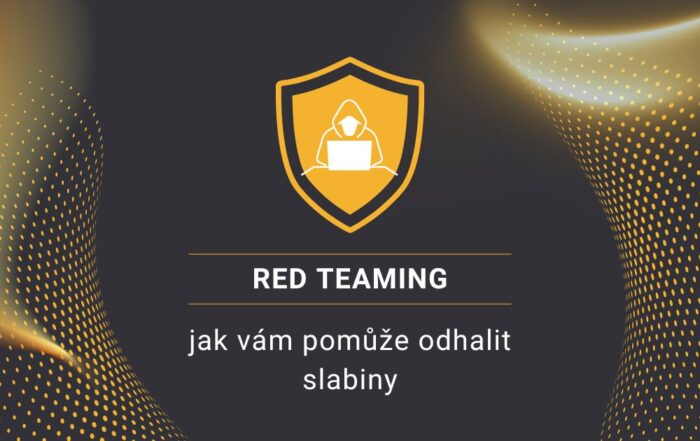Dne 10. prosince 2024 nalezl výzkumník společnosti SafeBreach Yuki Chen dvě zranitelnosti v systému LDAP.
První z nich sledovaná jako CVE -2024-49112 s CVSS skóre 9,8 představuje vážnou hrozbu umožňující vzdálené spuštění kódu (RCE). Útočník pro tuto zranitelnost použije speciálně upravené RPC volání, které provede na cílový LDAP server.
Druhá zranitelnost sledovaná jako CVE-2024-49113 s CVSS skóre: 7.5 umožňuje útočníkům vyvolat pád služby LSASS a restartu serveru. Útok se skládá z několika fází včetně DCE/RPC požadavku, DNS dotazu a speciálně vytvořeného CLDAP paketu.
Zranitelnost se týká všech verzí systému Windows Server včetně Windows Server 2019 a 2022. Zneužití by mohlo útočníkům umožnit převzít kontrolu nad doménovým prostředím.
K těmto zranitelnostem je veřejně dostupný PoC exploit, který zveřejnila společnost SafeBreach na svém GitHubu.
Microsoft opravil tyto zranitelnosti v prosincovém Patch Tuesday.
Vašemu podniku dáváte vše.
Chráníte i jeho digitální život?
Zanechte nám svůj e-mail a my vám poradíme, jak zlepšit zabezpečení vaší společnosti.
Narušení kybernetické bezpečnosti Volkswagenu
Volkswagen čelí závažnému narušení bezpečnosti, které odhalilo citlivé informace o přibližně 800 000 majitelích elektrických vozidel značek Volkswagen, Audi, Seat a Škoda.
Únik byl způsoben nesprávně nakonfigurovaným cloudovým úložištěm v Amazon Web Services (AWS), které spravuje dceřiná společnost Volkswagenu Cariad. Odhalená data zahrnovala kontaktní informace majitelů vozidel, jako jsou e-mailové adresy, telefonní čísla a domovní adresy. Alarmující také je, že data obsahovala velmi přesné údaje o poloze vozidel.
Pro přibližně 460 000 vozidel (některé modely Volkswagen a Seat) byla data o poloze extrémně přesná a umožňovala sledovat denní rutiny majitelů těchto vozů.
Zranitelnost objevil anonymní hacker, který ji oznámil Chaos Computer Clubu (CCC). Po otestování zranitelnosti CCC informoval Volkswagen a poskytl jim technické podrobnosti.
Volkswagen uvedl, že chyba byla opravena a že v datasetu nebyly zahrnuty žádné platební údaje zákazníků ani přihlašovací údaje.
Kritická zranitelnost v Apache Tomcat
Apache Software Foundation (ASF) vydala bezpečnostní aktualizaci, která řeší kritickou zranitelnost v softwaru Tomcat.
Zranitelnost sledovaná jako CVE-2024-56337 s CVSS skóre 9.8 je kritická zranitelnost, která umožňuje za určitých podmínek vzdálené spuštění kódu (RCE).
Jedná se o Time-of-check Time-of-use (TOCTOU) race condition, která postihuje verze Apache Tomcat 11.0.0-M1 až 11.0.1, 10.1.0-M1 až 10.1.33 a 9.0.0.M1 až 9.0.97.
Tato zranitelnost je důsledkem neúplné opravy předchozí zranitelnosti CVE-2024-50379. Útočník ji může zneužít převážně na systémech Windows, kde má Tomcat ve výchozím stavu povolenou funkci zápisu. To umožňuje obejít bezpečnostní opatření Tomcatu a nahrát soubory obsahující škodlivý kód.
Apache vydal bezpečnostní aktualizace pro řešení této zranitelnosti. Uživatelé by měli aktualizovat na Apache Tomcat 11.0.2, 10.1.34, 9.0.98 nebo novější verzi těchto hlavních verzí.
Kromě aktualizace je nutné provést další konfigurační změny v závislosti na verzi Javy. Pro Java 8 nebo Java 11 je třeba explicitně nastavit systémovou vlastnost sun.io.useCanonCaches na false. Pro Java 17 je nutné se ujistit, že tato vlastnost, pokud je nastavena, má hodnotu false. Pro Java 21 a novější nejsou nutné žádné další akce.
Aktualizace pluginů Tenable vyřazují Nessus agenty po celém světě
Společnost Tenable uvádí, že zákazníci musí ručně aktualizovat svůj software, aby oživili Nessus agenty, které byly 31. prosince vyřazeny z provozu kvůli chybným aktualizacím pluginů.
Tento incident se týká systémů aktualizovaných na verze 10.8.0 a 10.8.1. Společnost Tenable mezitím stáhla tyto problémové verze a vydala Nessus Agent 10.8.2, která problém způsobující vypínání agentů opravuje.
„Pro odstranění výše uvedeného problému musí všichni zákazníci Tenable Vulnerability Management a Tenable Security Center, kteří používají Tenable Nessus Agent verze 10.8.0 nebo 10.8.1, buď provést upgrade na verzi agenta 10.8.2, nebo downgrade na verzi 10.7.3. Pokud používáte agentové profily pro upgrade nebo downgrade agenta, musíte provést samostatný reset zásuvného modulu, abyste obnovili všechny offline agenty,“ uvedl Tenable.





